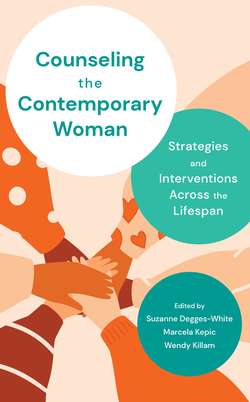Читать книгу Counseling the Contemporary Woman - Suzanne Degges-White - Страница 10
На сайте Литреса книга снята с продажи.
Age and Generational Influences
ОглавлениеGenerational influences heavily affect how women and girls understand gender roles, career possibilities, competence, attractiveness, and body image. Downing and Roush’s (1985) conceptual model of feminist identity development outlined the process of moving from passive acceptance of sexism and patriarchy to active commitment to dismantling sexism from a position of identity achievement, described as the often-unachieved apex of feminist identity. While not the final stage, the preceding stage of synthesis was described as the highest stage typically achieved. Each wave of feminism had its own distinct emphasis and societal perception, which strongly connects to women’s alignment with a feminist label. Research found that both feminist and nonfeminist women endorsed items corresponding to strength, independence, and identity as a woman, with younger women rarely identifying previous inconsistent views (Erchull et al., 2009). Erchull et al. (2009) concluded that the gains of the feminist movements may have shifted younger women’s perceptions of womanhood, suggesting that Downing and Roush’s (1985) synthesis stage may be a starting point, in contrast to previous generations. In addition to these generational influences, ageism, adultism, ableism, and sexism intertwine in a youth-oriented society that negatively frames women’s aging, while simultaneously dismissing the self-determination and agency of younger women. By connecting much of women’s value to their appearance and ability, negativity toward aging can engender dissatisfaction and feelings of inadequacy in women of all ages (Comstock, 2005; Dougherty, Dorr, & Pulice, 2016).
